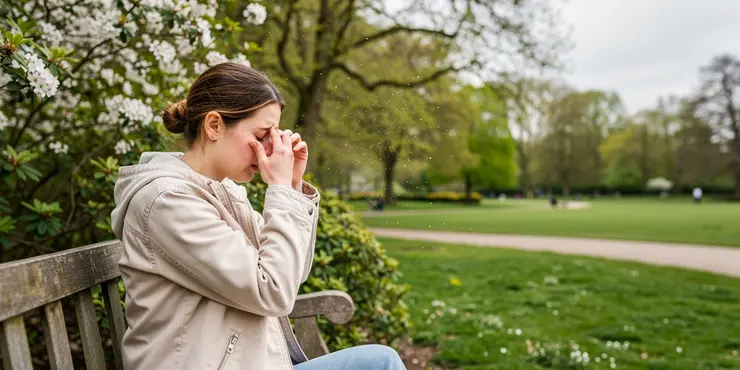
Find Help
More Items From Ergsy search
-
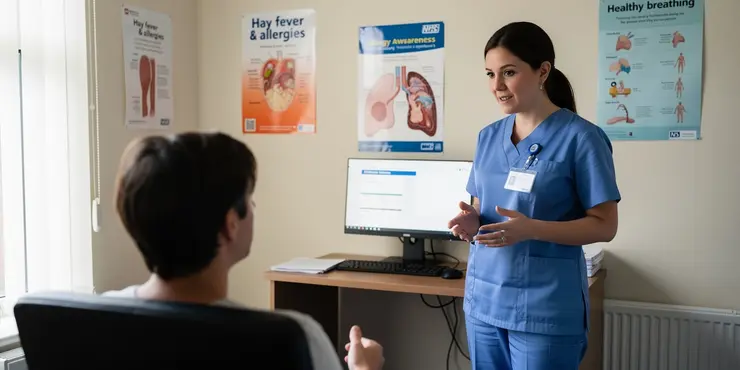
Do all plants produce pollen that causes hay fever?
Relevance: 100%
-
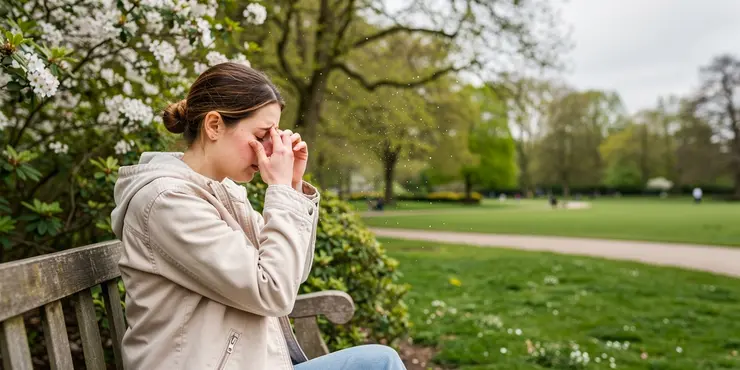
How does pollen affect people with hay fever?
Relevance: 99%
-
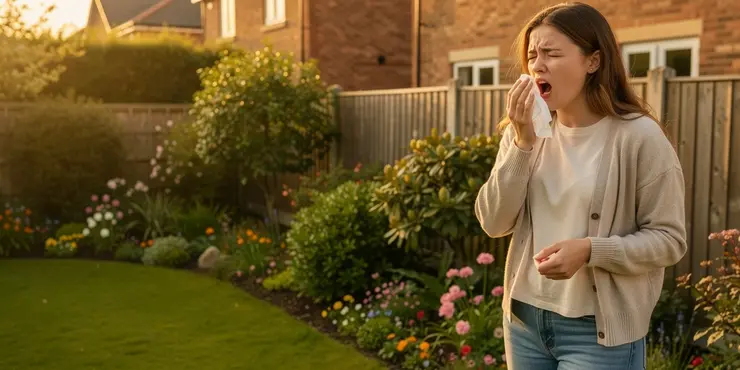
Experts Warn of Rising Hay Fever Cases as Pollen Counts Surge
Relevance: 94%
-
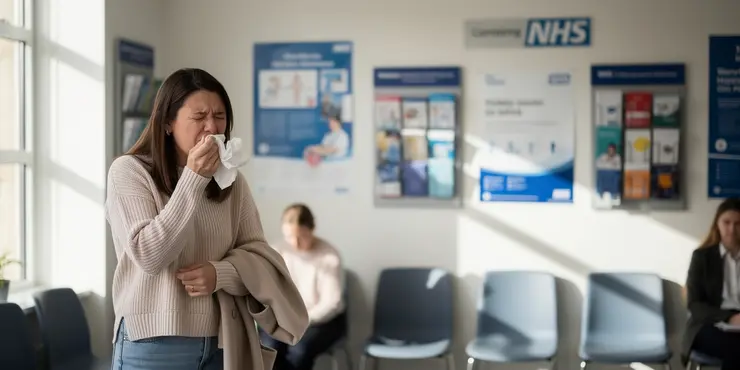
What is hay fever?
Relevance: 86%
-
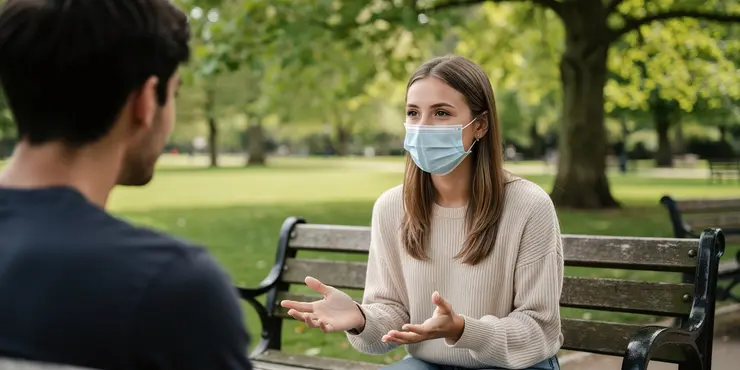
Do masks help with hay fever?
Relevance: 86%
-
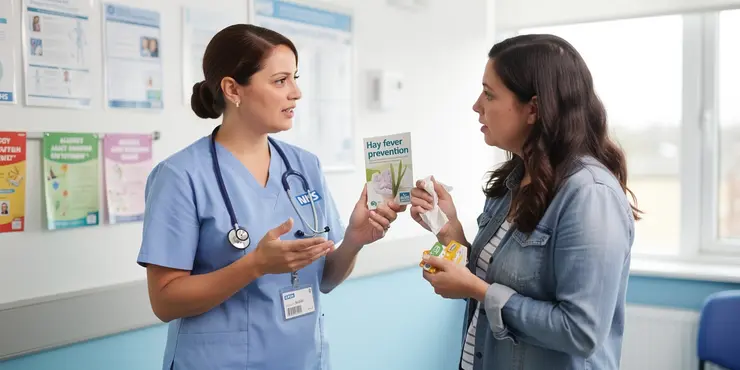
Can hay fever be prevented?
Relevance: 86%
-
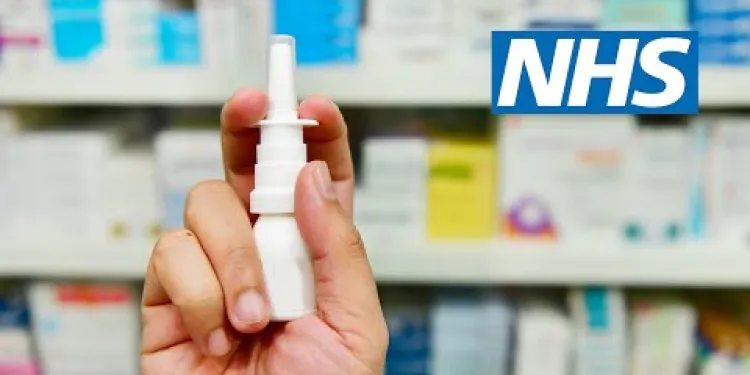
Hay fever advice | NHS
Relevance: 85%
-
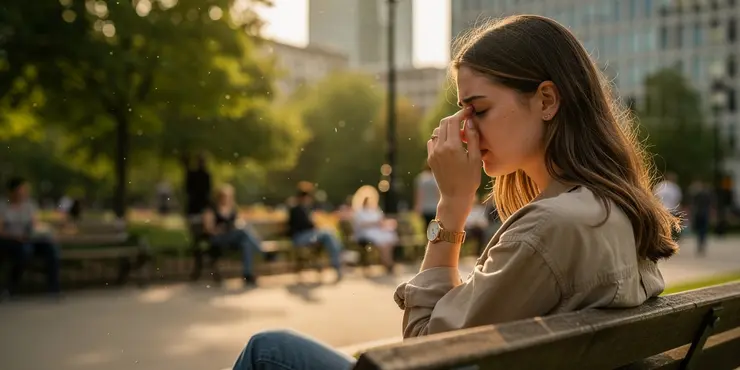
Is hay fever more common in urban areas?
Relevance: 81%
-
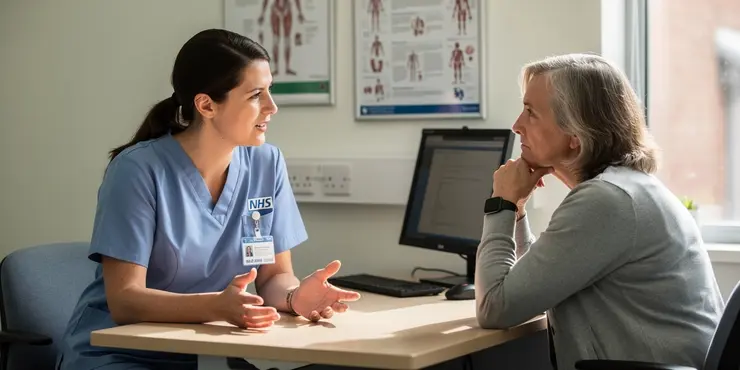
Why are experts warning of rising hay fever cases?
Relevance: 80%
-
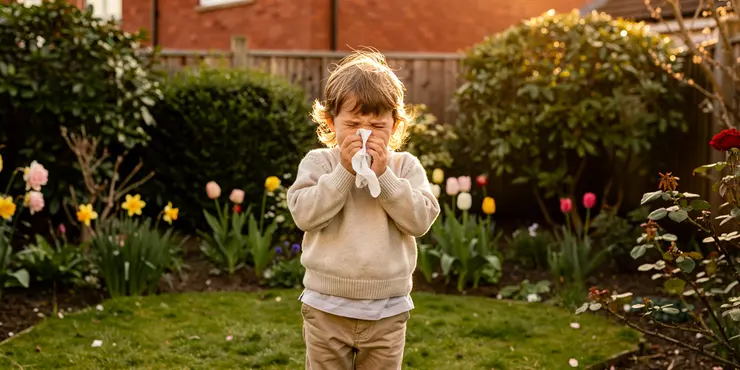
Can children develop hay fever?
Relevance: 79%
-
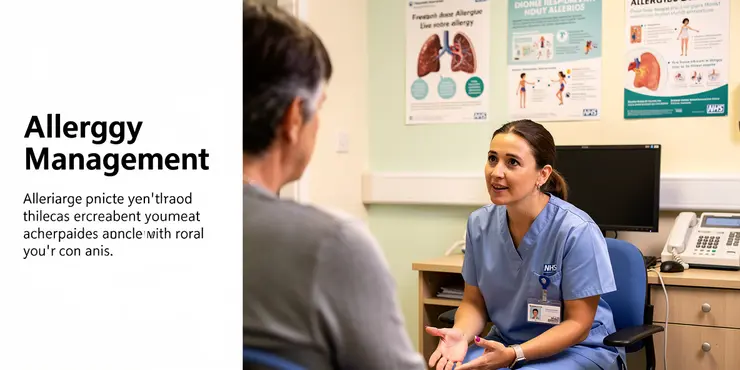
Is there a link between hay fever and asthma?
Relevance: 79%
-
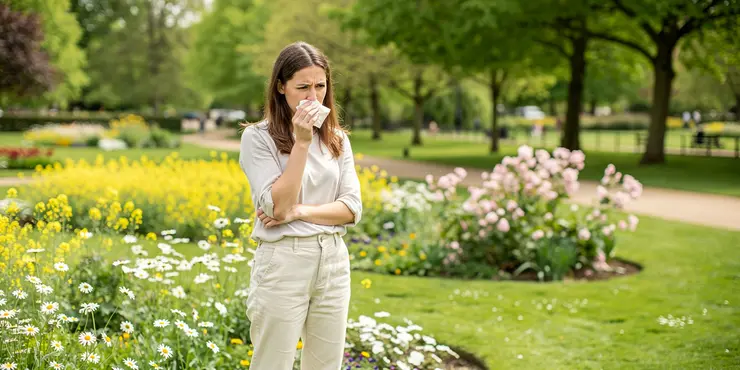
Are some people more prone to hay fever?
Relevance: 77%
-
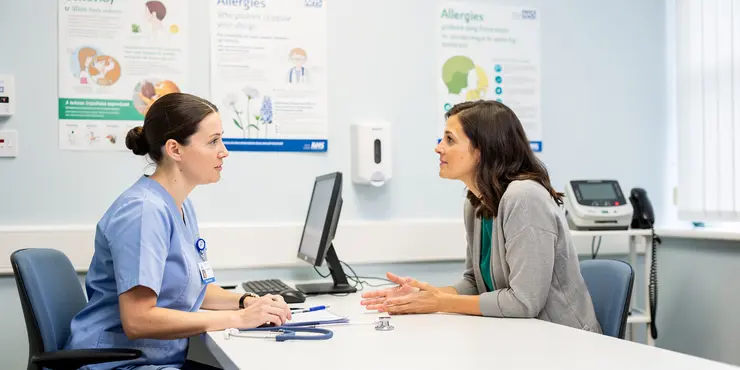
What are the common symptoms of hay fever?
Relevance: 77%
-

Do pets contribute to hay fever?
Relevance: 76%
-
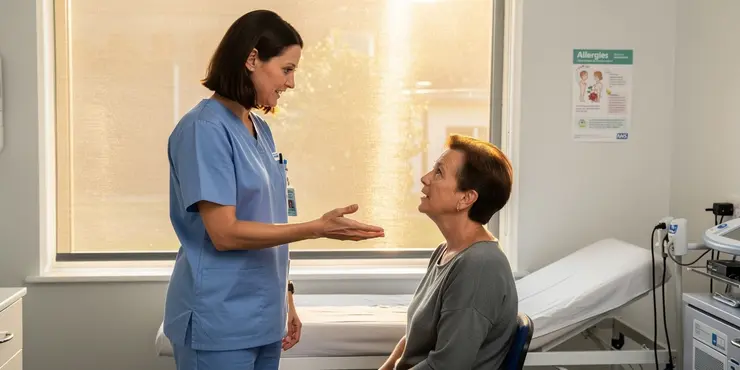
Can mosquito screens help reduce hay fever symptoms?
Relevance: 76%
-

Can hay fever occur year-round?
Relevance: 76%
-
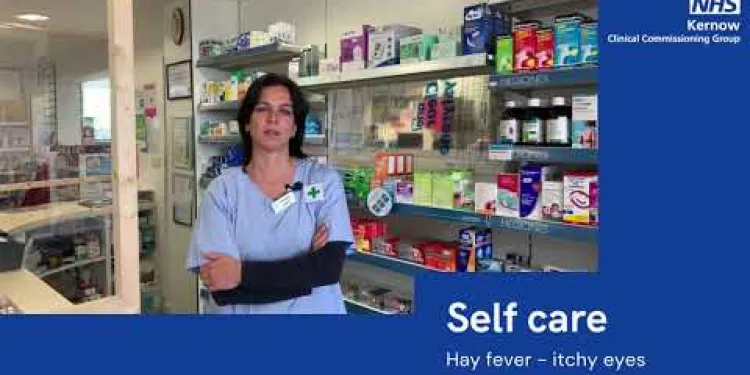
Self care - hay fever itchy eyes
Relevance: 75%
-

Can diet influence hay fever symptoms?
Relevance: 73%
-
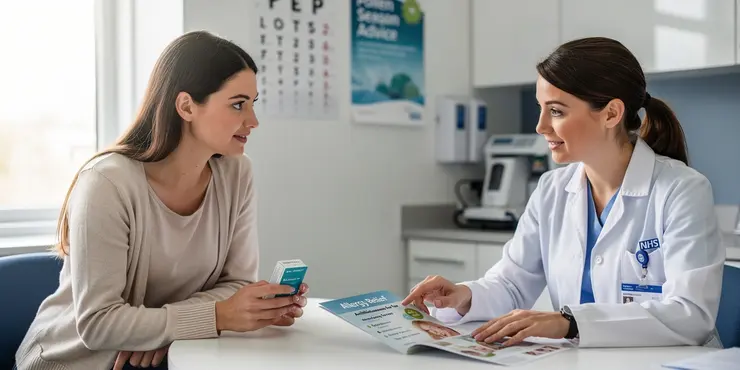
Antihistamines how they work with hay fever
Relevance: 70%
-

Can hay fever symptoms mimic other conditions?
Relevance: 70%
-
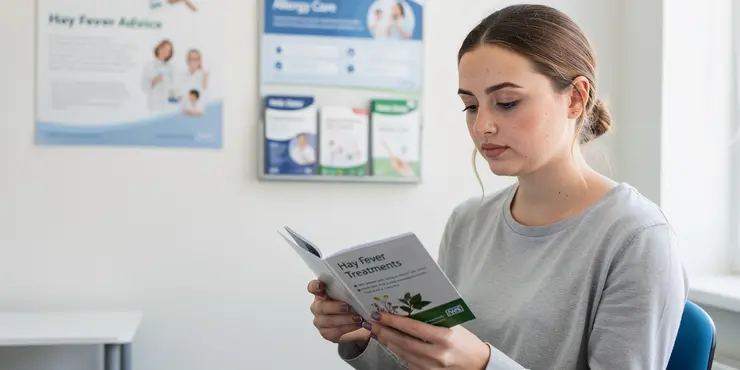
Are there any treatments for hay fever?
Relevance: 59%
-
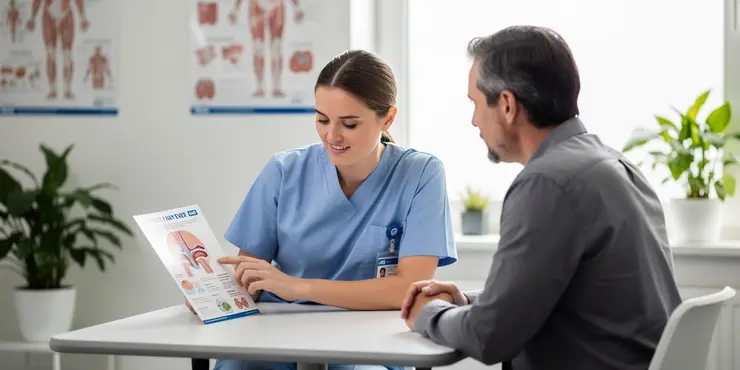
How long does a typical hay fever season last?
Relevance: 52%
-
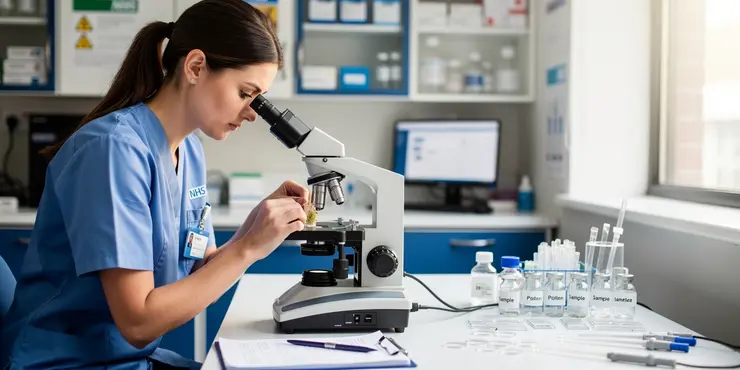
How are pollen counts measured?
Relevance: 51%
-
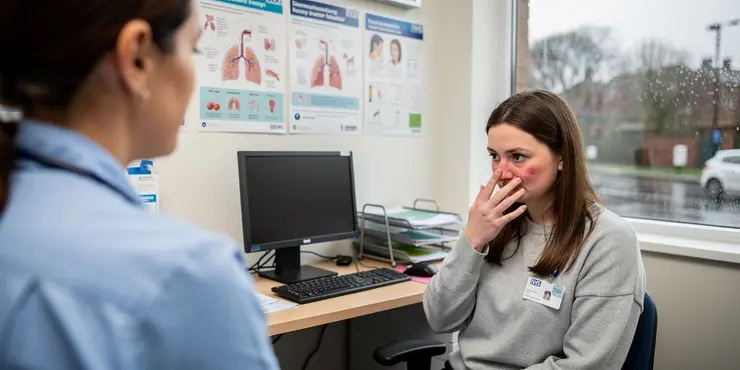
How does climate change affect pollen levels?
Relevance: 50%
-
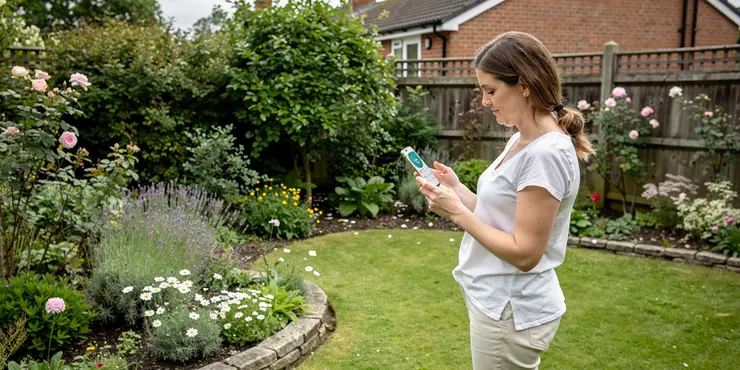
How can I reduce my exposure to pollen?
Relevance: 49%
-
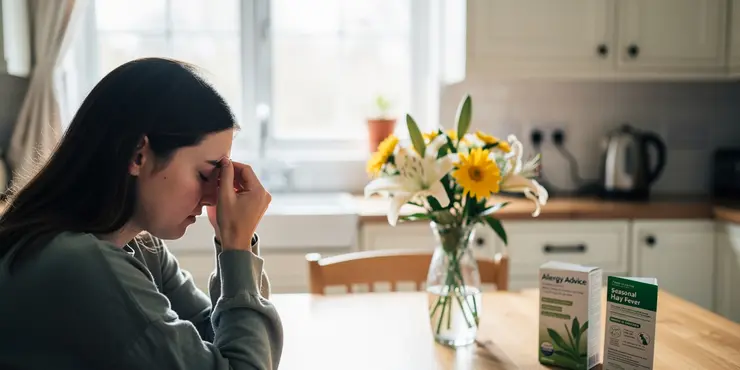
Dealing with Seasonal Allergies
Relevance: 30%
-
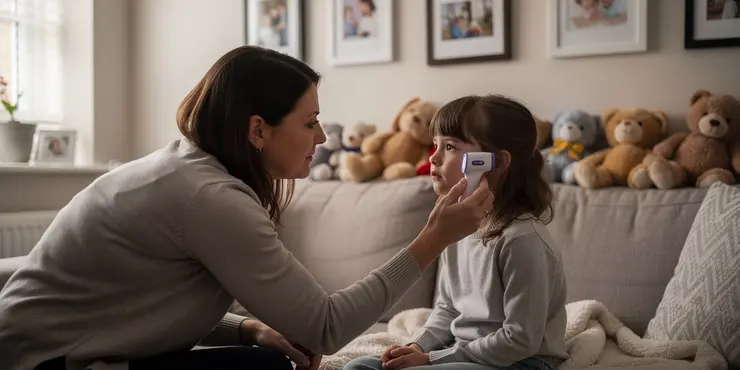
Caring for a child with fever | NHS
Relevance: 29%
-

Can dengue fever be contracted in the UK?
Relevance: 28%
-
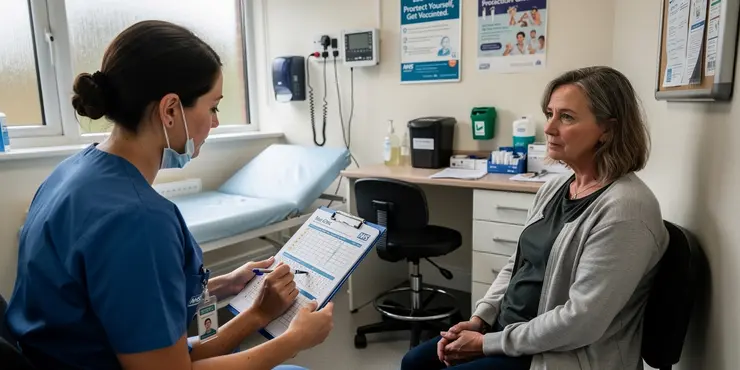
Is there a risk of yellow fever being spread by mosquitoes in the UK?
Relevance: 28%
-
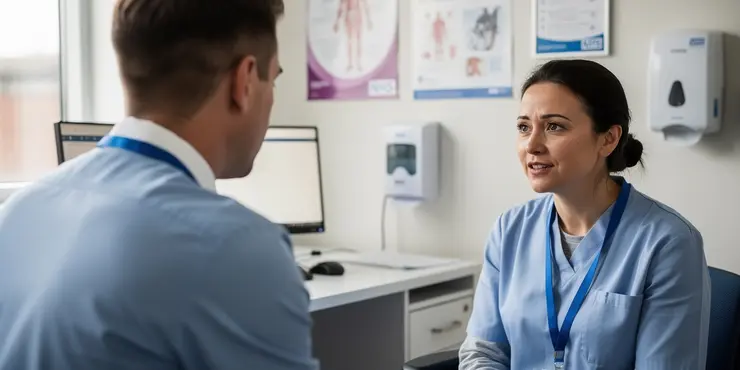
How to treat glandular fever | NHS
Relevance: 28%
-
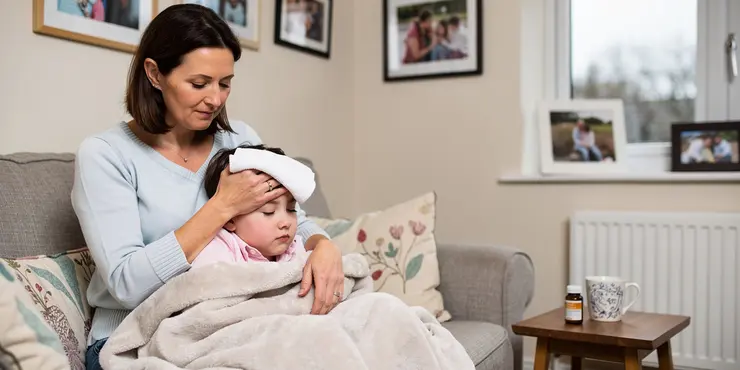
Which medication should be avoided for children with fevers?
Relevance: 27%
-
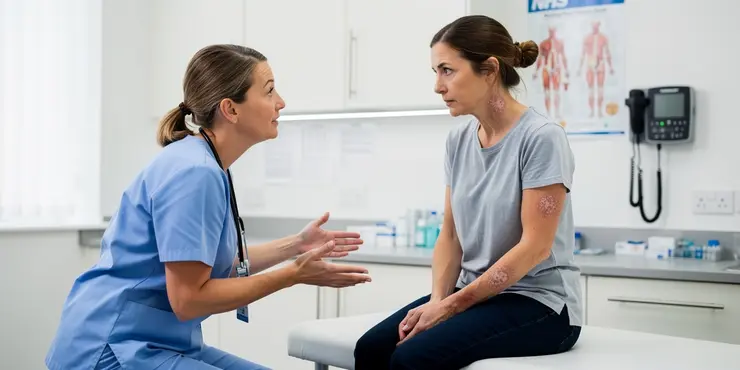
What causes nettle rash?
Relevance: 24%
-
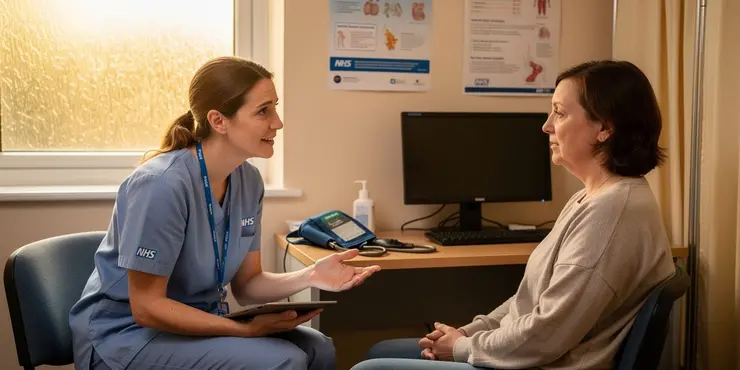
What is Dengue Fever?
Relevance: 24%
-
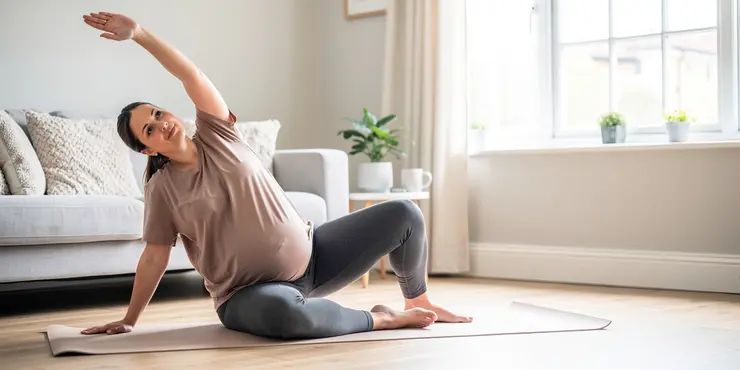
Can lifestyle changes help manage pain and fever during pregnancy?
Relevance: 23%
-
Can Dengue fever be transmitted through blood transfusions?
Relevance: 22%
-

Who is at risk of developing eczema?
Relevance: 17%
-

Are mosquito window screens effective in the UK?
Relevance: 17%
-
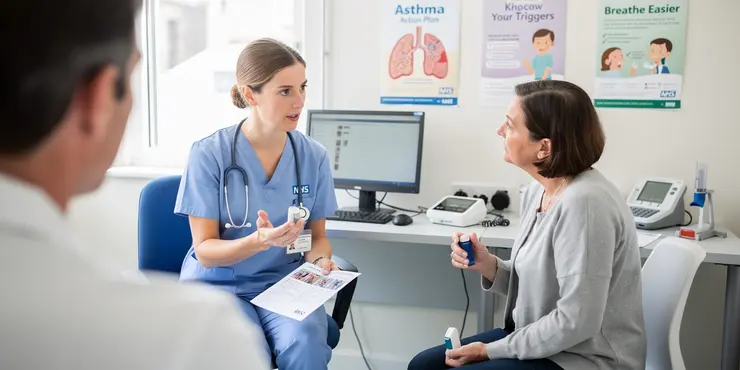
What causes asthma?
Relevance: 16%
-

What causes eczema?
Relevance: 16%
-
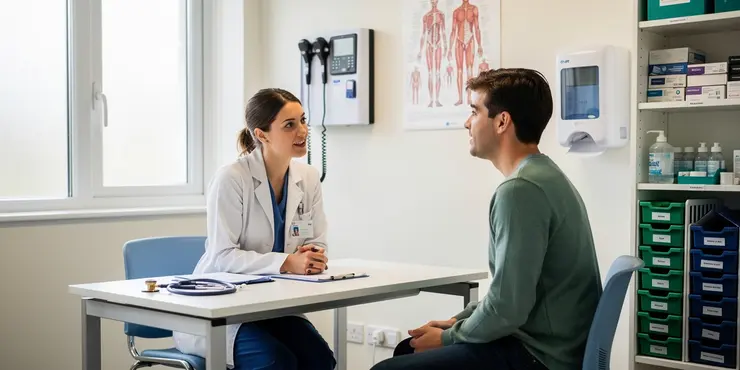
Are there different types of asthma?
Relevance: 16%
Understanding Hay Fever
Hay fever, also known as allergic rhinitis, affects millions of people in the UK each year. It is caused by an allergic reaction to pollen, a fine powder released by plants during their reproductive cycle. When individuals with hay fever are exposed to pollen, their bodies mistakenly identify it as a harmful substance and trigger an immune response.
The Role of Pollen in Hay Fever
Pollen is a crucial factor in the development of hay fever symptoms. In the UK, the most common types of pollen that trigger hay fever are tree, grass, and weed pollen. Tree pollen is usually prevalent from late March to mid-May, grass pollen from mid-May to July, and weed pollen from the end of June to September. Due to seasonal variations, understanding these cycles is vital for managing symptoms effectively.
Hay Fever Symptoms
When people with hay fever are exposed to pollen, their immune system releases histamines into the bloodstream. This results in a range of symptoms such as sneezing, runny or blocked nose, itchy eyes, and throat, and in some cases, headaches or fatigue. These symptoms can significantly impact daily life, influencing sleep quality, concentration, and overall well-being.
Triggers and Aggravating Factors
Pollen counts tend to be highest on warm, dry, and windy days, which can exacerbate symptoms. Urban areas, although they might contain fewer open fields, are not free from pollen. Pollutants can bind to pollen grains, potentially enhancing their allergy-inducing properties. Additionally, being outdoors when pollen counts are high, especially in the morning and early evening, can increase exposure.
Managing Exposure to Pollen
For those afflicted with hay fever, managing exposure to pollen is an effective way to control symptoms. Monitoring daily pollen forecasts allows individuals to plan activities or make environment-related decisions, such as keeping windows closed and avoiding outdoor activities when counts are high. Wearing sunglasses can help protect eyes from pollen, and changing clothes and showering after being outside can reduce pollen transfer indoors.
Medical Treatments and Remedies
Several treatments are available for managing hay fever symptoms. Antihistamines, available over-the-counter or by prescription, can help relieve sneezing and itching by blocking the effects of histamines. Nasal corticosteroid sprays may reduce inflammation and alleviate nasal congestion. Eye drops specifically designed for hay fever can decrease eye-related symptoms. In some cases, healthcare providers may suggest allergy immunotherapy, a series of injections aimed at desensitizing the individual to pollen over time.
Conclusion
Understanding how pollen affects the body and taking proactive steps to limit exposure are key methods for managing hay fever. By employing strategies to reduce contact with pollen and using available treatments, people with hay fever in the UK can significantly improve their quality of life during the hay fever season.
Understanding Hay Fever
Hay fever is also called allergic rhinitis. Many people in the UK get it each year. It happens when you have an allergy to pollen. Pollen is a tiny powder from plants. If you have hay fever and breathe in pollen, your body thinks it is dangerous and tries to fight it.
The Role of Pollen in Hay Fever
Pollen is the main cause of hay fever symptoms. In the UK, pollen from trees, grass, and weeds can cause hay fever. Tree pollen is common from late March to mid-May. Grass pollen is common from mid-May to July. Weed pollen is common from the end of June to September. Knowing when pollen is around can help you manage symptoms.
Hay Fever Symptoms
When you breathe in pollen, your body lets out something called histamines. This can make you sneeze, have a runny or stuffy nose, and make your eyes and throat itchy. Sometimes, you might also have headaches or feel very tired. These symptoms can make it hard to sleep or concentrate.
Triggers and Aggravating Factors
Pollen levels are high on warm, dry, and windy days. This makes symptoms worse. Even city areas have pollen, and pollution can make pollen cause more allergies. Being outside in the morning or evening when pollen counts are high can make symptoms worse.
Managing Exposure to Pollen
If you have hay fever, try to stay away from pollen. Check pollen forecasts every day. Keep windows closed and stay indoors when pollen counts are high. Wearing sunglasses can keep pollen out of your eyes. Change your clothes and take a shower after being outside to remove pollen.
Medical Treatments and Remedies
There are many ways to treat hay fever. Antihistamines, which you can buy at the store or get from a doctor, can stop sneezing and itching. Special nose sprays can help with a stuffy nose. Eye drops made for hay fever can soothe itchy eyes. Sometimes, doctors might suggest allergy shots to help your body get used to pollen.
Conclusion
Knowing how pollen affects you and staying away from it are important for managing hay fever. By avoiding pollen and using treatments, people with hay fever in the UK can feel better during the hay fever season.
Frequently Asked Questions
What is hay fever?
Hay fever, also known as allergic rhinitis, is an allergic reaction to pollen from grasses, trees, and other plants.
How does pollen trigger hay fever symptoms?
When people with hay fever inhale pollen, their immune system mistakenly identifies it as a threat and releases histamines, causing symptoms like sneezing, itching, and a runny nose.
What are some common symptoms of hay fever?
Common symptoms include sneezing, runny or blocked nose, itchy eyes, mouth, or skin, and redness in the eyes.
Can pollen affect asthma?
Yes, pollen can trigger asthma symptoms in people who have both asthma and hay fever.
Why do some people suffer from hay fever while others do not?
Hay fever occurs in people whose immune systems are sensitive to pollen. Genetic and environmental factors can both play a role.
Which types of pollen cause hay fever?
Pollen from grasses, trees, and weeds like ragweed can all cause hay fever.
When is pollen most prevalent?
Pollen levels are usually highest in spring and summer, but this can vary depending on the local climate and types of plants.
Can hay fever be treated?
There is no cure for hay fever, but symptoms can be managed with medications such as antihistamines, nasal sprays, and avoiding exposure to pollen.
Are there any lifestyle changes that can help reduce hay fever symptoms?
Avoiding outdoor activities when pollen counts are high, keeping windows closed, and using air purifiers can help reduce exposure to pollen.
Is it possible to outgrow hay fever?
Some people may experience a reduction in symptoms over time, but hay fever can persist throughout life.
How can pollen counts be monitored?
Pollen forecasts are available online or through weather services, which can help individuals plan their activities accordingly.
Can allergies worsen over time?
Allergies can change with age. Some people may experience worsening symptoms, while others may see an improvement.
What is the best way to avoid pollen exposure?
Staying indoors during peak pollen times, using air conditioning instead of opening windows, and wearing sunglasses outdoors can reduce exposure.
Are there natural remedies for hay fever?
Some people find relief from hay fever with local honey, saline nasal rinses, or herbal supplements, but efficacy can vary.
Can indoor plants affect hay fever?
Most indoor plants do not produce pollen, but they can collect dust and mold that may exacerbate hay fever symptoms in some individuals.
How does climate change impact pollen levels?
Climate change can lead to longer pollen seasons and higher pollen counts, potentially increasing the prevalence and severity of hay fever.
Is hay fever contagious?
No, hay fever is not contagious. It is an allergic reaction and cannot be passed from person to person.
Can hay fever affect children?
Yes, hay fever is common in children and can affect their daily activities and school performance if not managed.
What role do antihistamines play in managing hay fever?
Antihistamines help to reduce symptoms like sneezing and itching by blocking the effects of histamines released during an allergic reaction.
Are there prescription treatments for severe hay fever?
In severe cases, doctors may prescribe stronger medications like corticosteroids or recommend allergy shots for long-term relief.
What is hay fever?
Hay fever is when your nose and eyes feel itchy. You might sneeze a lot. This happens because tiny bits from plants are in the air.
Hay fever is not like a cold. It can happen when flowers are growing. Fresh flowers, grass, and trees can cause hay fever.
Use tissue paper to catch sneezes. Wash hands and face to feel better. Look for medicine at the chemist if you need it.
Hay fever is when your body has a bad reaction to tiny bits from plants like grasses and trees. These tiny bits are called pollen.
How does pollen make hay fever symptoms start?
Pollen is a tiny powder from plants. It can make some people sneeze and have itchy eyes. This is called hay fever.
Your body thinks pollen is bad. It tries to get rid of the pollen, which makes you feel like you have a cold.
Here are some tips to feel better:
- Stay inside when it's windy.
- Keep windows closed.
- Use tissues to keep your nose clean.
- Wearing sunglasses can help protect your eyes.
When people with hay fever breathe in pollen, their body thinks it is harmful. This is not true, but the body makes something called histamines. This causes sneezing, itching, and a runny nose.
Some things can help with hay fever. You can try using allergy medicine, or staying indoors when there is a lot of pollen outside. Special glasses and masks can also help keep pollen away from your eyes and nose.
What are signs of hay fever?
Hay fever can make people feel unwell, like when you have a cold. Here are some things to look out for:
- Sneezing a lot
- Runny or stuffy nose
- Itchy eyes, nose, or throat
- Watery eyes
- Feeling tired
If you think you might have hay fever, you can do some things to feel better:
- Stay inside when there's a lot of pollen outside
- Close windows and doors
- Use an air purifier
- Talk to a doctor or pharmacist about medicines that can help
Here are common signs:
- You might sneeze a lot.
- Your nose might run or feel blocked.
- Your eyes, mouth, or skin might feel itchy.
- Your eyes might look red.
If you have trouble reading, you can use tools like audiobooks or speech-to-text apps to help. You can also ask someone to read with you.
Can pollen make asthma worse?
Pollen is a tiny powder from plants. It can go in the air. If you have asthma, pollen might make it hard to breathe.
Some tips to help you:
- Stay indoors on days with high pollen count.
- Keep windows closed to stop pollen from coming in.
- Wear a mask outside if pollen bothers you.
If you feel sick, talk to a doctor about your asthma.
Yes, pollen can make asthma worse if you have asthma and hay fever.
Why do some people get hay fever and others don't?
Some people get hay fever, and some don't. Hay fever makes your nose run and your eyes itchy. It happens because of pollen from plants. Your body thinks pollen is bad, so it tries to fight it. Not everyone has this problem. Everyone's body is different, and some bodies don't mind pollen.
If you have hay fever, here are some things that can help:
- Wear sunglasses to keep pollen out of your eyes.
- Stay inside when there is a lot of pollen outside.
- Close windows to stop pollen from coming inside.
- Ask a grown-up or a doctor for medicine that can help.
Hay fever happens when a person's body is very sensitive to pollen. This can be because of their genes or things around them.
What pollen makes you sneeze and feel itchy?
Pollen is tiny bits of plants that can make you sneeze and feel itchy.
Things like grasses, trees, and weeds such as ragweed can make you have hay fever.
When is there a lot of pollen?
Pollen in the air is usually highest during spring and summer. But this can change because of the weather and the kinds of plants around you.
Here are some tips to help:
- Check the weather forecast for pollen updates.
- Try staying indoors on high pollen days.
- Wear sunglasses to keep pollen out of your eyes.
Can hay fever be treated?
Yes, hay fever can be helped. Here are some ways:
Medicine: You can take medicine to help stop sneezing and itchy eyes.
Stay Inside: Close the windows when it's windy to keep pollen out.
Use Tissues: Tissues can help with a runny nose.
For more help, talk to a doctor or ask an adult.
Hay fever can't be completely fixed, but you can feel better. You can take medicine like antihistamines or use nose sprays. Try to stay away from pollen too.
What can I do to feel better if I have hay fever?
If you have hay fever, there are some simple changes you can make to feel better:
- Stay inside when there is a lot of pollen outside.
- Keep windows and doors closed to stop pollen coming in.
- Take a shower and change clothes after being outside.
- Use an air purifier to clean the air in your home.
- Ask a grown-up to get you medicine that can help with hay fever.
Try using these tips to feel better during hay fever season! 😊
Stay inside when there is a lot of pollen outside. Close the windows. Use air purifiers to clean the air in your home. This helps keep pollen away.
Can you stop having hay fever as you get older?
For some people, hay fever gets better as they get older. But for others, it can last their whole life.
How can we watch pollen counts?
Pollen is tiny stuff that comes from plants.
Pollen can make some people have runny noses and itchy eyes.
We can check how much pollen is in the air. This is called pollen count.
To watch pollen counts, we can use:
- Special counting stations that collect pollen from the air.
- Pollen count websites or apps that tell us the pollen level.
- Weather reports on TV or radio.
If you need help to read, you can ask a family member or friend to read it to you.
Or you can use a text-to-speech tool that reads aloud.
You can find out about pollen levels on the internet or in weather reports. This can help you plan what you want to do each day.
Can allergies get worse as time goes on?
Allergies can change as you get older. Sometimes, allergies get worse. Other times, they get better.
How can I stay away from pollen?
Stay inside when there is a lot of pollen in the air. Use air conditioning to keep cool instead of opening windows. Wear sunglasses outside to protect your eyes.
Can nature help with hay fever?
Hay fever makes you sneeze and itch. Some natural things might help.
Here are two ideas:
- Drink herbal teas. They can be soothing.
- Try using a saltwater spray in your nose. It can clean your nose.
Ask a grown-up if you need help. They can also talk to a doctor for you.
Some people feel better from hay fever by using local honey, washing their nose with salt water, or trying herbal pills. But, these might work differently for each person.
Can indoor plants make hay fever better or worse?
Most plants inside don’t make pollen. But they can get dusty or moldy. This might make hay fever worse for some people.
How does climate change affect pollen levels?
Climate change is making the Earth warmer. When it gets warmer, plants can make more pollen. Pollen is the tiny bits plants release to make seeds.
With more pollen, some people may get itchy eyes or start sneezing more. This can happen because they are allergic to pollen.
To help with this, people can check the pollen forecast before going outside. They can also wear sunglasses and hats to keep pollen away from their eyes and face.
Climate change can make pollen seasons longer. This means more pollen is in the air for longer. It can also make more pollen in the air. This can make hay fever worse and more common.
Can you catch hay fever from someone else?
Hay fever is not something you can catch from someone else. It happens because of allergies. You can't pass it to other people.
Can Kids Get Hay Fever?
Yes, lots of kids have hay fever. It can make school and other daily activities hard if it is not taken care of.
How do antihistamines help with hay fever?
Antihistamines help with hay fever.
Hay fever makes you sneeze, and your nose and eyes are itchy.
Antihistamines stop the sneezing and help your nose and eyes not be itchy.
To help understand better, you can:
- Look at simple pictures or videos about hay fever.
- Ask someone to read with you and explain.
- Use a tool that reads text out loud.
Antihistamines help stop sneezing and itching. They work by blocking something in your body called histamines, which are part of allergies.
Can a doctor give medicine for bad hay fever?
If your allergies are really bad, doctors might give you stronger medicine called corticosteroids. They might also suggest allergy shots to help you feel better for a long time.
Useful Links
This website offers general information and is not a substitute for professional advice.
Always seek guidance from qualified professionals.
If you have any medical concerns or need urgent help, contact a healthcare professional or emergency services immediately.
Some of this content was generated with AI assistance. We’ve done our best to keep it accurate, helpful, and human-friendly.
- Ergsy carfully checks the information in the videos we provide here.
- Videos shown by Youtube after a video has completed, have NOT been reviewed by ERGSY.
- To view, click the arrow in centre of video.
- Most of the videos you find here will have subtitles and/or closed captions available.
- You may need to turn these on, and choose your preferred language.
- Go to the video you'd like to watch.
- If closed captions (CC) are available, settings will be visible on the bottom right of the video player.
- To turn on Captions, click settings .
- To turn off Captions, click settings again.
More Items From Ergsy search
-

Do all plants produce pollen that causes hay fever?
Relevance: 100%
-

How does pollen affect people with hay fever?
Relevance: 99%
-

Experts Warn of Rising Hay Fever Cases as Pollen Counts Surge
Relevance: 94%
-

What is hay fever?
Relevance: 86%
-

Do masks help with hay fever?
Relevance: 86%
-

Can hay fever be prevented?
Relevance: 86%
-

Hay fever advice | NHS
Relevance: 85%
-

Is hay fever more common in urban areas?
Relevance: 81%
-

Why are experts warning of rising hay fever cases?
Relevance: 80%
-

Can children develop hay fever?
Relevance: 79%
-

Is there a link between hay fever and asthma?
Relevance: 79%
-

Are some people more prone to hay fever?
Relevance: 77%
-

What are the common symptoms of hay fever?
Relevance: 77%
-

Do pets contribute to hay fever?
Relevance: 76%
-

Can mosquito screens help reduce hay fever symptoms?
Relevance: 76%
-

Can hay fever occur year-round?
Relevance: 76%
-

Self care - hay fever itchy eyes
Relevance: 75%
-

Can diet influence hay fever symptoms?
Relevance: 73%
-

Antihistamines how they work with hay fever
Relevance: 70%
-

Can hay fever symptoms mimic other conditions?
Relevance: 70%
-

Are there any treatments for hay fever?
Relevance: 59%
-

How long does a typical hay fever season last?
Relevance: 52%
-

How are pollen counts measured?
Relevance: 51%
-

How does climate change affect pollen levels?
Relevance: 50%
-

How can I reduce my exposure to pollen?
Relevance: 49%
-

Dealing with Seasonal Allergies
Relevance: 30%
-

Caring for a child with fever | NHS
Relevance: 29%
-

Can dengue fever be contracted in the UK?
Relevance: 28%
-

Is there a risk of yellow fever being spread by mosquitoes in the UK?
Relevance: 28%
-

How to treat glandular fever | NHS
Relevance: 28%
-

Which medication should be avoided for children with fevers?
Relevance: 27%
-

What causes nettle rash?
Relevance: 24%
-

What is Dengue Fever?
Relevance: 24%
-

Can lifestyle changes help manage pain and fever during pregnancy?
Relevance: 23%
-
Can Dengue fever be transmitted through blood transfusions?
Relevance: 22%
-

Who is at risk of developing eczema?
Relevance: 17%
-

Are mosquito window screens effective in the UK?
Relevance: 17%
-

What causes asthma?
Relevance: 16%
-

What causes eczema?
Relevance: 16%
-

Are there different types of asthma?
Relevance: 16%


